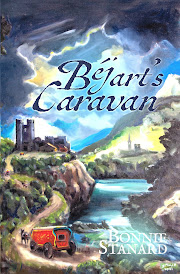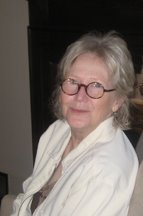AT THE DRIP CAFE
You have to hand it to
pubs, cafés, and clubs that set aside an evening of the week to showcase local
talent. Last night my friend Laura Valtorta and I had some trepidation about
going to the Drip Café, located in Five Points, an area of watering holes for
university students.
We were directed to a small
back room with standing room only where a performer was playing the mandolin.
It was some relief to see his gray hair, even more because it was worn below
his ears. The audience was a blend of old and young, professional and student.
I relaxed when the audience sang along with the performer on “It Takes a
Worried Man.”
Following the music, the
owner/presenter announced there would be a poet reading for 30 minutes followed
by open mic. Laura and I gave each other a look. Thirty minutes is a long time
for an amateur to read, and poetry isn’t an easy read. We left after a couple
of poems.
WRITERS AS READERS
I’m not the only person who
is skeptical of writers reading their work. Even Gail Godwin (an author at the
SC Book Festival) can’t keep an audience with a prolonged recitation of her
work. On the other hand, there have been writers like Dylan Thomas who built
his popularity on his electric performances.
Shouting words or charging
through poems, notwithstanding Alan Ginsberg, doesn’t necessarily engage an
audience and may alienate some. Tone goes a long way. It may be elevated like
W.H. Auden’s or succinct like W.S Merwin’s or gravely like Robert Frost’s, all
interesting readers of their poetry.
Though the Drip Café is an
exciting venue, too many times I’ve been trapped in an uncomfortable seat in an
ordinary room with a dry audience. Granted, my experience with poetry readings
is limited, but from that limited experience I’ve drawn some conclusions.
I’ve learned to sit near a
door so I can escape if necessary. I suspect the main reason people attend
poetry events, especially those hosted by libraries, official organizations, or
colleges, is not for entertainment, but to show support for the writer or to
operate the sound system.
Writing skill doesn’t
necessarily equate with reading skill. It’s a matter of communicating with two
different audiences. Nonetheless, some talented writers assume the stage and
utter words without inflection as if the poem alone will strike the audience
with delight, guilt, or whatever.
TACTICAL ATTACK FOR READING
If I’m going to inflict my
poetry on an audience, here are a couple of things I’ll think about:
◊ I’ll introduce myself with more than one sentence.
If the poet’s name was mentioned before she launched into a poem last night, I
missed it.
◊ I’ll dress as if I’m interesting, and this doesn’t
mean business or church clothes or something unusual. It means interesting.
◊ It isn’t often possible to select the venue, but if
possible, I’ll read in a pleasant small-size room rather than a conference room
or auditorium.
◊ Sounds simple, but I’ll make sure to read slowly and
enunciate. I can’t tell you how many times I’ve had to wonder what the reader
was saying. On the CDs of recorded poetry I own, the readers (sometimes also
the writers) invariably articulate every word.
◊ Another thing that adds interest to a reading,
whether poetry or prose, is to provide background information. I don’t like to
be told what a poem “means” (aren’t we supposed to figure that out for ourselves?)
but I will talk about writing it, maybe where I was when I wrote it, or how I
got the idea, how long ago, that sort of thing.
◊ For me, short poems trump long ones (whether read or
written). Maybe my attention span has a deficit, but I can’t keep on keeping-on
longer than five minutes for any one poem.
◊ A sound system is an absolute necessity. No
microphone means no voice. You might think this is elementary, but based on the
readings I’ve attended, we need to work on simple stuff.
◊ I’ll avoid angst. Poetry lends itself to
introspection, but I’ll dig into my files for amusing poems (granted, I haven’t
written many of these). Poems on varying subjects are bound to wake up a
listener here or there.
◊ Sometimes I work on a poem so long my interest, not
to mention enthusiasm, has burned out and I no longer have the voice to do it
justice. In that case, I’ll choose poems that aren’t so fresh, ones I wrote
some time past.
It might sound like I’m
preparing for the stage. Actually, I’d be terrified in front of the microphone.
I don’t have a suggestion for myself about overcoming stage fright. And these
writers I’m complaining about because I found them boring, well, they didn’t
turn red in the face and tremble visibly. They probably didn’t spend sleepless
nights worrying about the upcoming event. Did they castigate themselves for the
things they could have done better? Get a case of the hives?













No comments:
Post a Comment